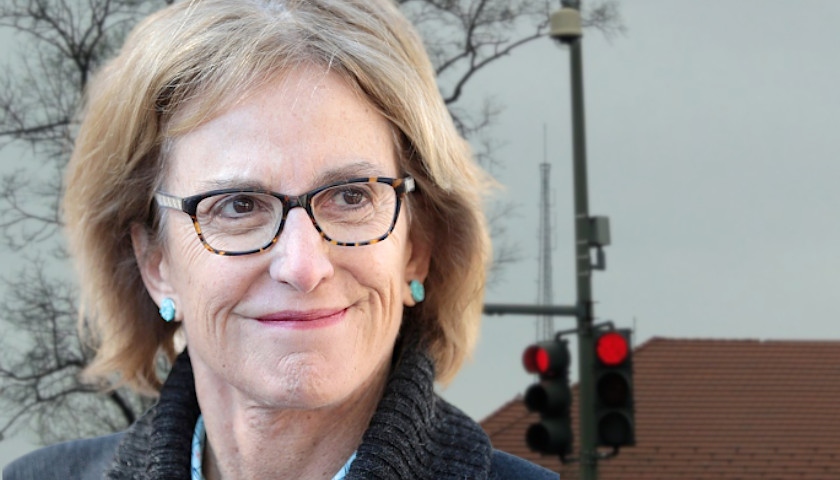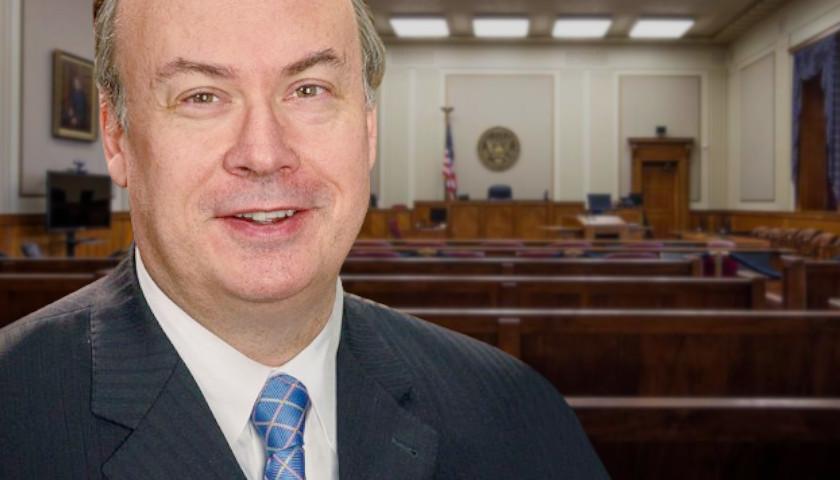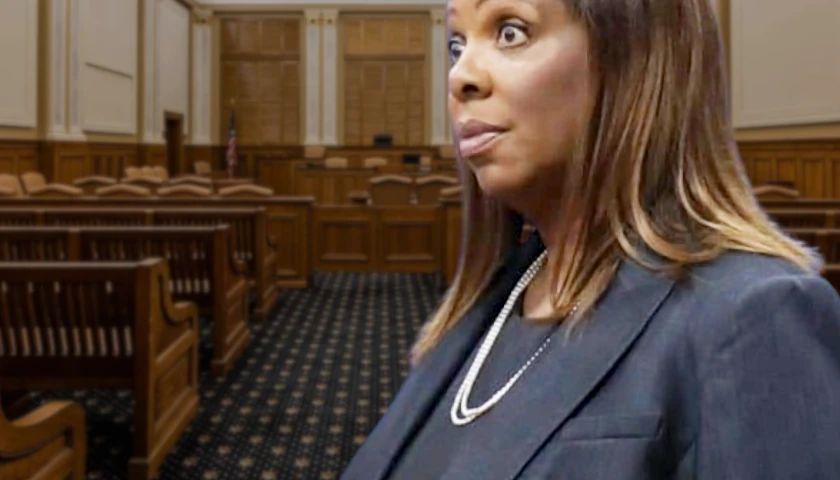SB 1234, sponsored by State Senator Wendy Rogers (R-Flagstaff), is likely to be sent to Democratic Governor Katie Hobbs within the next few days. The measure won approval by the State Senate and its consideration is underway in the State House. The bill would ban cities and towns from using photo enforcement to generate revenue from speeding and red-light tickets.
At the same time, the Arizona Campaign for Liberty (AZC4L) discovered that police officers in Scottsdale, Mesa, and Paradise Valley are not reviewing those tickets, which State Senator Sonny Borrelli (R-Lake Havasu) stated is required by a law he proposed that got signed into law in 2018.
Rogers (pictured above) said last year she intended to champion the legislation. “The photo radar industry made its home base in Arizona,” she said during an August 2021 interview with TheNewspaper. “And that ends next year. We’re no longer going to allow government to spy on Arizonans for profit and trample due process rights.”
Borrelli’s 2018 bill modified A.R.S. 28-1602 to provide in section (C), “Before a citation is issued, a law enforcement agency must review evidence that is recorded by a photo enforcement system to determine whether a violation of chapter 3, article 3 or 6 of this title or of a city or town ordinance for excessive speed or failure to obey a traffic control device occurred.”
Section (D) of the statute provides, “A photo enforcement company may not determine whether a violation of chapter 3, article 3 or 6 of this title occurred for the purpose of the issuance of a citation. A violation of this subsection is a class 1 misdemeanor.”
Borrelli clarified during a hearing that year that citations require a police officer to look over the violation.
“If the vendor sent, let’s say 10 suspected violations, and sent it to the police department, the police department kicked back nine,” he said. “All I’m concerned about is that one that’s going out, that goes out by the police officer — I don’t want — because the real determination really comes down to the police officer’s determination if it’s a violation.”
AZC4L submitted public records requests to police departments in the Valley and received responses from Scottsdale, Mesa, and Paradise Valley, admitting they do not have a police officer review all citations. The request asked for “names and badge numbers of each ‘currently sworn police officer’ (which you define as not including civilians) who reviews photo enforcement tickets issued by the” city or town.
The city of Scottsdale said it used “sworn officers” and “non-sworn employees” to review the tickets. The town of Paradise Valley said it does not use any sworn officers.
A member of AZC4L confronted the Mesa Chief of Police after a hearing on the bill in the House, asking him if he knew what the law said and whether a police officer was reviewing the tickets. Mesa Police Chief Ken Cost responded, saying “the police agency” reviews the tickets. He refused to answer further questions. However, his agency told the AZC4L over email that no sworn officers were reviewing tickets.
AZC4L told The Arizona Sun Times it believes some third-party contractors operating photo enforcement systems were working illegally without a private investigator license. In 2016, Borrelli asked Attorney General Mark Brnovich for an opinion. Brnovich said it was a violation of law, and all photo enforcement in the state was shut down for two months.
However, the Arizona Department of Public Safety provided them with private investigator licenses to resolve the problem, allowing them to resume operating. Until then, AZC4L said it believed it had been operating illegally for 30 years. ACC4L Director Shawn Dow told TheNewspaper at the time, “Both Redflex and ATS have been playing P.I. for years in violation of state law. It looks like the DPS director grabbed his rubber stamp as fast as he could to rescue his old pals.”
Photo radar on state highways mostly ended in 2010 when then-Governor Jan Brewer allowed the contract to expire. It was banned by legislation from the remaining highways in El Mirage and Star Valley in 2016.
In 2015, Karen L. Finley, a former chief executive officer of Redflex, a red light camera vendor, pleaded guilty to participating in an eight-year bribery and fraud scheme. She admitted contributing to politicians in exchange for them assisting the company in obtaining or retaining municipal contracts.
The National Motorists Association (NMA) compiled numerous studies which found that red light cameras increase, not decrease, accidents at intersections. The NMA also found that “there is no independent verification that photo enforcement devices improve highway safety, reduce overall accidents, or improve traffic flow.”
Sources tell The Sun Times that Hobbs is likely to veto the bill. Kari Lake, who is still challenging her loss to Hobbs, said she would have banned them. She tweeted last August, “Red light cameras have been scamming Arizonans for decades. They are tax systems, not safety devices. If you make me your next governor, I will ask the legislature to BAN them all immediately. I want that bill on my desk. #azleg #liberty.”
– – –
Rachel Alexander is a reporter at The Arizona Sun Times and The Star News Network. Follow Rachel on Twitter. Email tips to [email protected].
Photo “Wendy Rogers” by Gage Skidmore. CC BY-SA 3.0. Background Photo “Red Light Camera” by takomabibelot. CC BY 2.0.







